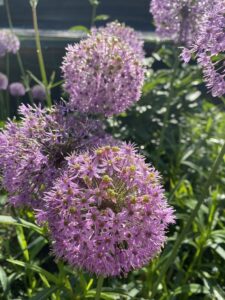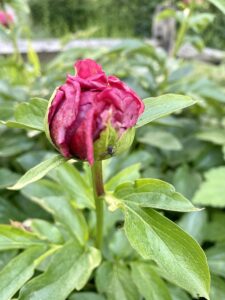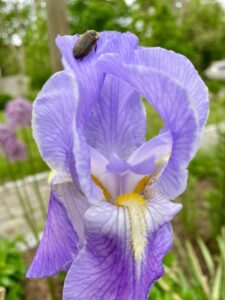When I think back to my childhood here, I remember days spent in the woods and fields and on the marshes and the dune tops. The memories have an enchanted quality to them: those remembered woods are alive with so much energy that they bring to mind scenes from fairy tales where everything is tinged with magic.
In my memories, the forests are filled with the gentle warm glow of fireflies rising and falling in the darkening air. The low wet pools in the woods sing with the collective voice of thousands of peeper frogs, a sound so loud and constant it feels physical. Under every rotting log are salamanders, slick sleeping bodies with red stripes along their lengths or deep black speckled with lemon yellow. There are turtles lumbering through the underbrush like old mossy stones come to life. And so many honeybees that the flowers bow under their weight. Not a single summer passed without the surprise and ache of a bee sting — a sign of their abundance and a reminder to tread lightly through our shared world.

It was a family custom of ours, living in a house nestled into the woods, to sit on the front steps and watch the world. We had a porch with proper seating, a patio with a table and chairs, and a screened-in room with comfy furniture, but we always sat on the front steps. At day’s end, we would watch the bats come out and swoop through the dusk. Our eyes followed the glowing bodies of fireflies twinkling on and off like stars in the forest, and we heard the voice of the ponds fill up the woods. In the mornings, we would sit and listen to the cardinals and catbirds lift the sun higher in the sky with their singing.
I remember one sound most vividly: the low coo and punctuating whistle of a bobwhite singing its own name. These quails moved unseen through the underbrush of the oak forest surrounding the house. One morning, I heard a clear and lonely song moving though the trunks and branches unanswered. I remember it because that was the last time I heard that song.
This spring, the songs of the peepers in the low vernal pools in our woods seemed more subtle than usual. They came out later, sang more quietly, and seemed to end their season sooner. Perhaps it was the cold spring, perhaps something else. Their numbers and volume have always seemed to me to be an indicator of the health of the environment.

Fewer bats fill the dusk sky in the evenings. I haven’t seen a spotted salamander in years. It is not for lack of digging in the ground. I do that nearly every day.
Last summer, on a warm night in July, I saw the gentle rise and fall of little lights in the woods. Excitement bloomed in my chest. I pointed and shouted, “Look! fireflies!” And then, quietly, “Remember fireflies?”
As I’ve gotten older and lost more things, I’ve sought ways to live more deeply. Recently, I started listening to a series of mindfulness meditations inspired by Stoicism. Modern-day Stoics focus on developing things like emotional intelligence, resilience, and patience. Among the meditations I’m practicing is one developed by the philosopher William Irvine called the “last time meditation.”
Following it, I try out the idea that when I experience something this will be the last time I do. The last time I smell this flower. The last time I surf this wave. The last time I eat dinner with my family. The exercise awakens a feeling of immense gratitude for the moment I find myself in. I listen closer, hug longer, and spend more time watching the bees climb through their flowers.

This morning, I walked into my garden to see who was there. These being the last days of May, the peonies are beginning to open, their pink tissue paper spilling from cracked green marble buds. The purple globes of the allium stand like giant dandelions, and the irises lean over, heavy with folds of sky blue. The stage was set. But the morning was quiet. I heard no determined rustling of the petals and pollen; there was not a single bee on any of the flowers.
I often catch myself thinking that as a human being I exist somewhere outside the complex and delicate web of interaction we call nature. But I am, aside from the seasons and the weather, perhaps the most influential factor of all. The choices I make in the tiny sphere of influence I call my yard affect a broader world.
I notice that these last time meditations have cultivated presence and gratitude. But gratitude without action in its service seems like a contradiction. This turn of mind has me asking how I can act as a caretaker of this place where I live in the time I have here. What can I do to ensure that I have not already felt the ache of a bee sting for the last time?



